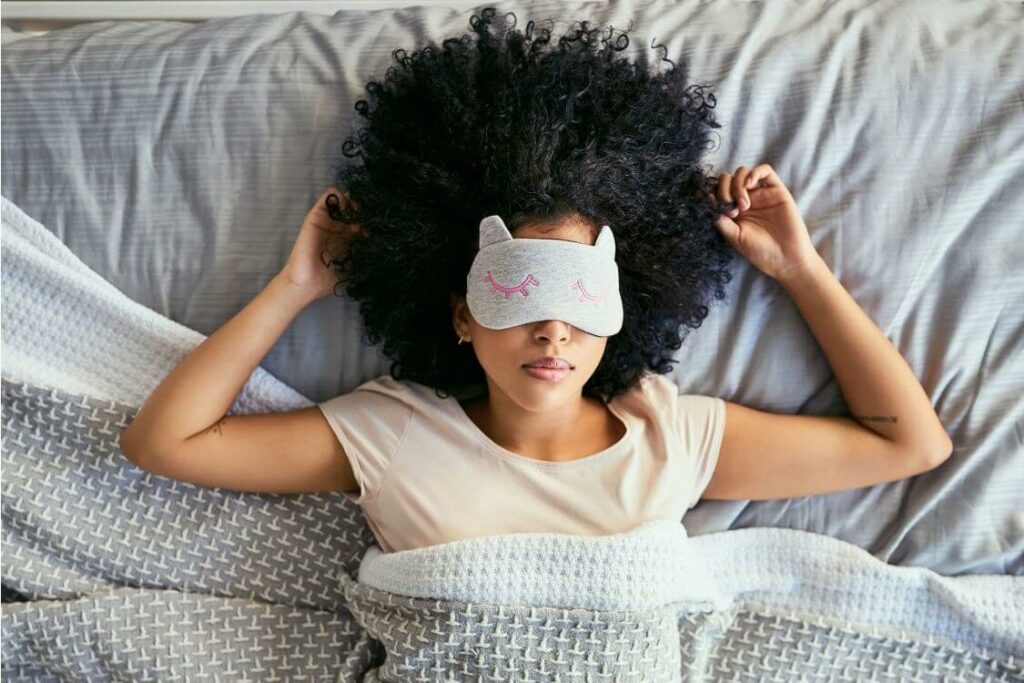
In recent years, CBD based products have gained popularity amongst people looking to ease stress, anxiety and depression, and the common resultant symptom: trouble sleeping.
One of the main reasons that CBD and other natural remedies are becoming more popular in treating the behaviours associated with bad sleeping is that they don’t pose the risks that some prescribed sedatives do: CBD isn’t addictive and does not present any known long-term health risks. Lots of our customers tell us its great for sleep!
The THC that is present in marijuana is known to have sedative effects, but marijuana and THC remain illegal in the UK. CBD does not have the same sedative effects as THC, and therefore CBD vapes and oils do not cause drowsiness in low doses. CBD is instead thought to be able to treat the cause of insomnia and other sleep problems at its root – which is often stress or anxiety related.
There are five stages of sleep. Stages 1 to 4 are known as non-rapid eye movement (NREM) stages and stage 5 is what’s called rapid eye movement (REM) sleep. Each sleep cycle lasts around 90 minutes, but the precise amount of time we spend in NREM and REM stages varies.
Most adults likely need around 8 hours of sleep a night, with children and teenagers needing more, and the elderly needing less. Sleeping is restorative, no matter what age you are, and is something that the human body needs in order to repair and rest. Sleep deficiency can be a serious issue if ongoing and can have significant detrimental effects on mental and physical wellbeing.
Research shows that CBD can help to modulate the sleep cycle. This means that in low doses it can promote wakefulness and alertness, while in high doses it may make you drowsy. These qualities make it a great indirect way to improve your sleep habits and help to alter your sleeping routine.
Although CBD and THC are both compounds in cannabis, it is THC that has a sedative effect and makes users feel ‘high’. CBD does not have sedative properties, meaning that it is not an alternative to sleeping pills or other prescription drugs.
However, whereas sedatives can simply put a bandage on the problem by alleviating immediate sleep issues, anecdotal evidence shows that CBD could do more to address the root of the issue – which is often anxiety or stress related.
In addition to cannabinoids like CBD, terpenes also play a significant role in the potential sleep-enhancing effects of CBD-based products. Terpenes are aromatic compounds found in various plants, including cannabis. They are responsible for the distinctive scents of different cannabis strains and can contribute to the overall therapeutic effects of CBD.
Certain terpenes are known for their relaxing and sedative properties, which can complement the potential benefits of CBD for sleep. For example, the terpene myrcene is known for its calming effects and has been linked to improved sleep quality. Another terpene, linalool, is commonly associated with lavender and is known for its potential to reduce stress and anxiety, further promoting better sleep.
When combined with CBD, these terpenes can create an entourage effect, where the compounds work together synergistically to enhance their individual effects. This means that CBD products formulated with specific terpene profiles could potentially offer better sleep support than CBD alone.
CBD-based products have gained recognition for their potential to address sleep issues by targeting underlying factors such as stress and anxiety. While CBD itself doesn’t have sedative properties, its influence on the sleep cycle and its ability to promote relaxation make it a promising supplement for sleep management. Additionally, the incorporation of sleep-promoting terpenes in CBD products further enhances their potential benefits. However, it’s important to consult with a healthcare professional before using CBD for sleep, especially if you have existing medical conditions or are taking other medications.
Remember that improving sleep habits involves a holistic approach that encompasses lifestyle changes, stress reduction techniques, and potential supplements like CBD. If you’re considering using CBD for sleep, explore different product options, such as CBD e-liquids and oral CBD oil, and consider the unique benefits offered by terpenes to make an informed decision that aligns with your sleep goals.
Please note: This blog post reflects historical data predating recent changes in cannabinoid laws, medical cannabis regulations, and some of our best CBD product names, strengths, and formulations. These historical blogs remain as a reference post our website update, but they might contain outdated information. Discover our updated CBD and legal cannabinoid products for the best CBD experience.